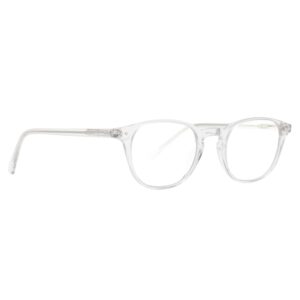
Key Takeaways
- Omega-3 fatty acids, particularly EPA and DHA, are crucial for maintaining eye health.
- Incorporating omega-3 supplements into your diet can help reduce the risk of macular degeneration and dry eye syndrome.
- It’s important to choose high-quality omega-3 supplements and consume the right dosage for maximum vision benefits.
- Eating a diet rich in omega-3s from both animal and plant sources can support eye health alongside supplementation.
- Always consult with a healthcare provider before starting any new supplement regimen, especially if you have pre-existing health conditions or are taking other medications.
Unlock the Vision-Protective Power of Omega-3s
Omega-3 fatty acids are not just good for your heart; they’re like high-octane fuel for your eyes. The two key types of omega-3s, EPA (eicosapentaenoic acid) and DHA (docosahexaenoic acid), are particularly potent in supporting vision and combating eye diseases. But it’s not just about popping a pill and hoping for the best. To truly maximize the vision benefits of omega-3 supplements, you need to know the hows and whys.
Quick Overview of Omega-3 Benefits for Eyesight
Let’s dive into the science. Omega-3 fatty acids are essential fats that your body can’t produce on its own. They play a critical role in cell membranes throughout the body, including those in the eyes. DHA is a major structural component of retinal cells, and it’s crucial for maintaining the health of your retina, where the magic of vision happens.
But why should you care? Because getting enough omega-3s can help protect against:
- Age-related macular degeneration (AMD), a leading cause of vision loss
- Dry eye syndrome, which can lead to discomfort and blurred vision
- Diabetic retinopathy, which can occur in individuals with diabetes and lead to severe vision impairment
Moreover, omega-3s have anti-inflammatory properties that can help soothe irritated eyes and improve overall eye comfort.
Your Guide to Omega-3 Sources: From Fish to Algae
Most people associate omega-3s with fish, and they’re not wrong. Fatty fish like salmon, mackerel, and sardines are teeming with these beneficial fats. However, if you’re not a fish fan or you’re vegetarian or vegan, don’t fret. You can also get your omega-3s from algae supplements, which are an excellent plant-based source of DHA.
Here’s a pro tip: When choosing an omega-3 supplement, look for one that contains both EPA and DHA, as they work together to support eye health.
Scientific Insights: Omega-3s and Vision Health
Research backs up the eye benefits of omega-3s. A large study called the AREDS2 (Age-Related Eye Disease Study 2) looked into the effects of omega-3s on eye health. The results? Participants with a high intake of omega-3s had a lower risk of developing advanced AMD.
And let’s not forget dry eyes. Omega-3s help regulate the oily layer of your tears, keeping your eyes comfortably lubricated. A study in the “International Journal of Ophthalmology” found that omega-3 supplementation improved symptoms and tear quality in patients with dry eye disease.
Personalizing Your Omega-3 Intake According to Age and Health
Just like a tailor customizes a suit to fit perfectly, your omega-3 intake should be tailored to your unique needs. Children, adults, and seniors all require different amounts of omega-3s. And if you have specific health conditions, like diabetes or high blood pressure, you might need to adjust your intake accordingly.
For instance, adults over the age of 50 may benefit from higher amounts of omega-3s to protect against AMD, while children need sufficient omega-3s for proper eye development. The key is to start with a baseline recommended by health experts and adjust as needed under the guidance of a healthcare provider.
Eating Your Way to Good Vision
Eating a balanced diet rich in omega-3s is a delicious way to support your eye health. The good news is that omega-3s are found in a variety of foods, so you can choose from many tasty options.
But it’s not just about what you eat—it’s also about how you prepare it. For example, grilling or baking fish instead of frying helps preserve the omega-3 content. And remember, consistency is key. Incorporating these foods into your daily diet will help maintain steady levels of omega-3s in your body for ongoing eye health support.
Top Foods Rich in Omega-3s
Here’s a quick list of foods packed with omega-3s to help you see your way to better health:
- Fatty fish: Salmon, mackerel, and sardines are at the top of the list.
- Seeds and nuts: Flaxseeds, chia seeds, and walnuts are great for vegetarians and vegans.
- Plant oils: Canola oil and flaxseed oil can be used in cooking or dressings.
Adding these foods to your diet is a simple and effective way to boost your omega-3 intake.
Incorporating Omega-3s into Your Daily Meals
Let’s make it practical. How can you get these omega-3-rich foods into your daily routine? Here are some ideas:
- Start your day with a smoothie that includes flaxseed or chia seeds.
- Make a lunchtime salad topped with walnuts and a flaxseed oil dressing.
- Enjoy a dinner of grilled salmon with a side of steamed vegetables.
These simple swaps and additions can make a big difference in your daily omega-3 intake.
Navigating Side Effects and Interactions
While omega-3 supplements are generally safe, they’re not free from potential side effects or interactions with other medications. It’s important to be aware of these so you can take omega-3s safely.
Common Side Effects of Omega-3 Supplements
Some people may experience mild side effects from omega-3 supplements, such as:
- Fishy aftertaste
- Upset stomach
- Nausea
These are typically not serious and can often be mitigated by taking supplements with meals or trying a different brand.
Interaction with Medications and Conditions
Omega-3s can interact with certain medications, such as blood thinners, and conditions like bleeding disorders. Therefore, it’s crucial to talk to your healthcare provider before starting omega-3 supplements if you’re taking medication or have a health condition.
When to Consult Your Healthcare Provider
If you’re unsure about the right omega-3 supplement for you, or if you’re experiencing side effects, it’s always best to consult your healthcare provider. They can help you navigate the options and find a solution that works best for your health and lifestyle.
Maintaining Long-Term Eye Health with Omega-3s
Omega-3s are not a quick fix; they’re part of a long-term strategy for maintaining eye health. By combining a diet rich in omega-3s with quality supplements, you can create a solid foundation for your vision that will benefit you for years to come.
Lifestyle Choices for Sustained Vision Health
It’s not just what you put into your body that counts; it’s also about the choices you make day-to-day. Healthy habits can significantly impact your vision health over time. Besides ensuring a steady intake of omega-3s, wearing sunglasses to protect your eyes from harmful UV rays, getting regular exercise to improve blood circulation to the eyes, and managing screen time to avoid eye strain are all important.
Monitoring Your Vision: When to Get Professional Advice
- Annual eye exams to catch issues early
- Consulting an eye care professional if you experience any changes in your vision
- Discussing the use of omega-3 supplements with an optometrist or ophthalmologist
Regular check-ups with an eye care professional are vital. They can provide personalized advice and help you monitor the health of your eyes. This is especially important if you’re at risk for eye diseases like AMD or diabetic retinopathy, where omega-3s can play a preventative role.
Remember, early detection is key to managing and treating eye health issues. Therefore, don’t skip those appointments, and be proactive about your eye health.
By combining these lifestyle choices with a diet rich in omega-3s, you’re setting the stage for long-term vision health. So, make those smart choices today for the sake of your eyes!
Frequently Asked Questions
There are always questions when it comes to supplements and health. Let’s address some of the most common queries about omega-3s and eye health.
What is the connection between Omega-3 and vision health?
Omega-3 fatty acids, especially DHA, are vital for maintaining the health of your retina, where visual processing takes place. They help with cell membrane integrity and fluidity, which is essential for optimal functioning of retinal photoreceptors.
- DHA comprises a significant portion of the retinal outer segment
- Omega-3s have anti-inflammatory properties that can help with eye conditions like dry eye syndrome
- They can also reduce the risk of AMD and potentially slow its progression
Omega-3s are like the building blocks for healthy eyes. Ensuring you have enough of them is crucial for maintaining good vision.
Can Omega-3 supplements cure eye diseases?
While omega-3 supplements offer many benefits, they are not a cure-all. They can help reduce the risk of developing certain eye diseases and can support overall eye health, but they are not a substitute for medical treatment. If you have an eye condition, it’s essential to follow your healthcare provider’s recommendations.
How long does it take to notice the benefits of Omega-3 for eyes?
As with any supplement, the effects of omega-3s on eye health can vary from person to person. Some may notice improvements in dry eye symptoms within a few weeks, while it may take longer for others. For conditions like AMD, the benefits of omega-3s would be more about prevention and potentially slowing progression rather than immediate noticeable changes.
Are there vegan sources of Omega-3 for eye health?
Yes, for those following a vegan lifestyle, algae-based supplements are a great source of DHA. Flaxseeds, chia seeds, and walnuts provide ALA, another type of omega-3 that the body partially converts to DHA and EPA.
Can children and teens safely take Omega-3 supplements for vision?
Omega-3s are important for eye development, so ensuring children and teens get enough through diet or supplements can be beneficial. However, it’s crucial to consult with a pediatrician before starting any supplement regimen to determine the appropriate dosage and to ensure it’s safe for your child.
Remember, supplements are just that—a supplement to an already healthy lifestyle. A balanced diet, protective eyewear, and regular eye exams are the foundation of good eye health. Add in the right omega-3 supplement, and you’re giving your eyes the best chance to stay sharp and focused, now and in the future.


